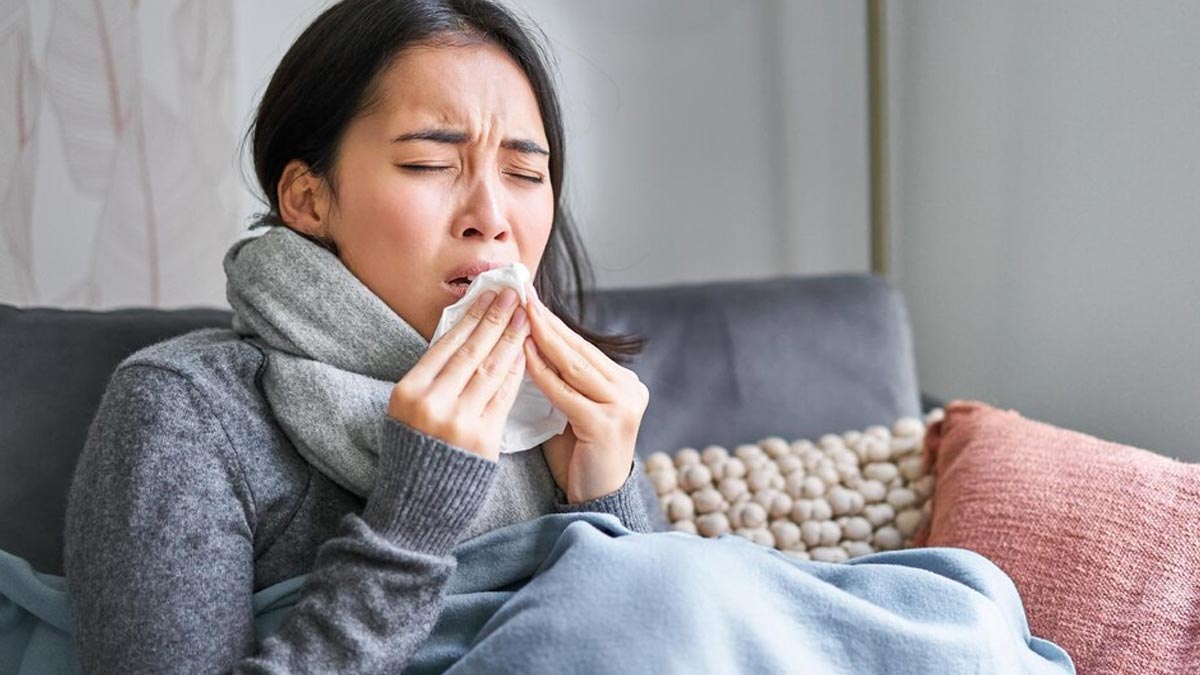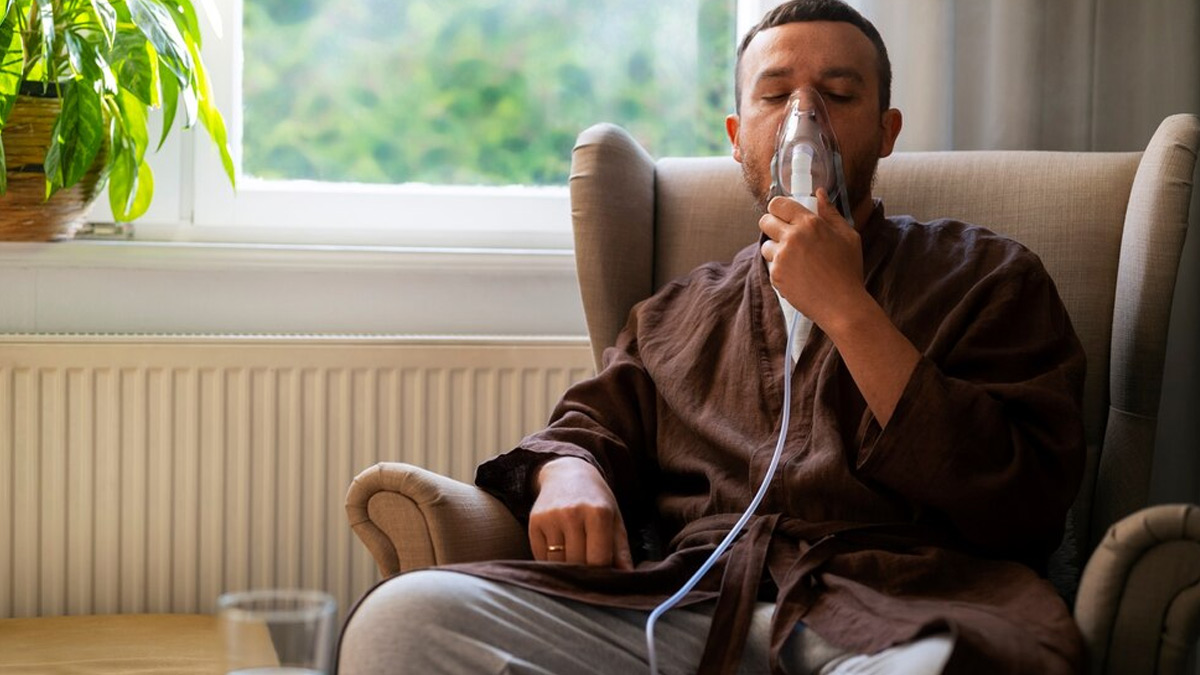
If you have pneumonia, you probably already know how unpleasant the symptoms can be. From a persistent cough and chest pain to shortness of breath, loss of appetite, and fatigue, the condition can really wear you down. If you've been diagnosed, it is likely that you're also receiving treatments for it. However, when it comes to speeding up the recovery, there's more to it than just medicines and therapies.
Table of Content:-
Here’s an expert-recommended guide for not just understanding the impact of pneumonia on lung health but also ways to take care and regain strength.
Also Read: What Is Double Pneumonia? Understanding Cause, Symptoms And Treatment Approach
How Pneumonia Affects Lung Health

In an interaction with the OnlyMyHealth team, Dr Subhajit Sen, Associate Consultant - Pulmonology, Fortis Hospital, Anandapur, describes pneumonia as a health condition in which the lungs are affected by infections caused by viruses, fungi, and bacteria.
He says, "Since the lungs are one of the major organs of the respiratory system, infected lungs would spontaneously impact respiratory health. This happens because the infection leads to inflammation in the lungs’ air sacs, called alveoli, filling them up with fluid or pus. As a result, it becomes difficult for the inhaled oxygen to enter the bloodstream."
According to the World Health Organization (WHO), pneumonia can cause mild to life-threatening illnesses in people of all ages and is the single largest infectious cause of death in children worldwide.
In 2017, more than eight lakh children under the age of five succumbed to the condition, accounting for 15% of all deaths of children in that age group. In addition, people over 65 and those with pre-existing health conditions are at a greater risk of developing the condition.
Treatment Options For Pneumonia

The treatment for pneumonia may vary and is subjected to the type of pneumonia derived, as per Dr Sen. He adds that it also depends on other health complications experienced.
Some of the treatment options include the following:
- Antiviral medications are used for treating viral pneumonia, like influenza pneumonia.
- Antibacterial medications are used for treating bacterial pneumonia. Common bugs include pneumococcus and Klebsiella pneumoniae.
- Antifungal medications are given to treat fungal pneumonia. Fungal pneumonias are rare and commonly seen in people with low immunity, for example, cancer patients.
- Apart from antimicrobials, treatment of pneumonia also includes support for other organs.
- In cases of reduced oxygen supply, oxygen therapy is given.
- Intravenous (IV) fluids are directly injected into the veins in cases of dehydration or to prevent dehydration.
- Intercostal tube or catheter drainage: If there’s an accumulation of too much fluid in the pleura, the lining between the chest walls and lungs, the doctor may drain it out through the intercostal tube or catheter drainage.
According to the doctor, antimicrobials are usually continued for 5-7 days but may need longer treatment for complicated cases. The duration of recovery from pneumonia may vary from person to person. While some may recover within a week, others may take about a month or even more to recover, he notes, adding that most people experience fatigue for a month.
Also Read: Lung Health: 7 Different Ways To Know Your Lungs Are Functioning Properly
Pneumonia After-Care Tips
After receiving treatments, the battle isn’t entirely over. While you may start feeling better and notice fewer symptoms, there are still measures you must take to speed up recovery. Here is some advice shared by Dr Sen:
- Avoid in-person contacts with family and friends to prevent the spreading of germs.
- Cover your nose and mouth while sneezing and coughing.
- Wash your hands frequently.
- Routine checkups by the doctor post-recovery and medications, if antibiotics are used for the treatment, as the X-ray tends to take time to clear up.
Some tips that will help you regain strength include:
- Resting a lot
- Gradually resuming normal work life
- Starting physical movements around only if the body feels ready to do it
- Consumption of a healthy, balanced diet
- Drinking plenty of water
- Completing the prescribed medications

Here’s what you should avoid while recovering from pneumonia:
- Crowds and any sort of in-person contact and communication
- Consumption of alcohol and smoking
- Processed foods and sugary drinks
- High-sodium diet
- Exercises that involve deep breathing
Conclusion
Pneumonia can be an exhausting disease. It can take a long time to clear away, and in the process, it may take a massive toll on a person’s overall health. Therefore, to speed up the recovery, you must also eat good food, rest as much as you can, manage your stress, and avoid overworking your body. Keep in touch with your doctor and continue taking your medications as prescribed by them. Remember, the focus should be on clearing the infection and getting back in shape.
Also watch this video
How we keep this article up to date:
We work with experts and keep a close eye on the latest in health and wellness. Whenever there is a new research or helpful information, we update our articles with accurate and useful advice.
Current Version
